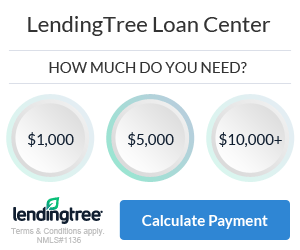Owning a piece of land without a developed structure on it can be a smart financial move. Building on the property in the future may lead to your dream home or keeping it in the family to pass down from generation to generation may create your legacy.
While owning bare land is an open book for most, it is, at its core, an unused asset. Most landowners have a difficult time tapping into the equity built up in the property over time, especially when there is no intention to build on the land in the immediate term.
Land creates a challenge when contemplating using it as collateral for equity financing because most lenders view raw land as an incredible risk. Because landowners do not live on the property, it is far easier to walk away and fail to repay an equity loan on the land. It is also typically harder to sell land, especially for rural properties. This leaves lenders exposed to a level of risk not found with home equity financing deals.

However, if you’re considering taking out a land equity loan to buy another piece of land, consolidate debt, build a new home, buy a mobile, manufactured, or modular home, or make another investment, there are lenders who will give you the time of day.
Here is what you need to know about obtaining vacant land equity financing first.
It is Best to Own the Vacant Land Outright
You may be able to find a traditional bank or credit union willing to offer an equity loan or line of credit on vacant land, but there is also a handful of online lenders and brokers who specialize in this type of financing.
Regardless of the route you choose, most lenders are more apt to offer a land equity loan to individuals who own their large piece of land or small lot outright. With no other debt tied to the land, lenders see the property as a lower risk than if there is an outstanding mortgage or lien against it.
If you do have a mortgage on the land you plan to use as collateral for an equity loan, you may not have as much access to the equity in your land due to the inherent risk of land ownership.

How Much Funding Is Vacant Land Eligible For?
For traditional home equity loans and home equity lines of credit (HELOC), lenders typically offer to finance for a relatively high loan-to-value (LTV) percentage – the amount left on the first mortgage compared to the market value of the home. However, because there is no structure developed on vacant land, lenders are less likely to lend 80% or 90% of the value of the land.
Instead, most land lenders cap equity loans for vacant land at 35% of the property’s value. In some cases, you may be able to acquire a land equity loan for a higher portion of equity, but you will likely face higher interest rates and additional closing costs as a result.
Lenders use these tactics to reduce the overall risk of the land equity loan.

Alternative Lending Options for Vacant Landowners
1. Refinance Your Vacant Land Loan
Because obtaining a land equity loan can prove to be difficult, especially for those who don’t own the land outright, you may be better off refinancing your current land loan and taking cash out. You can get a cash-out refinance loan on the land even if you don’t currently have a loan on the property.
We recommend you start by speaking to your current lender or preferred bank if you don’t have a mortgage on the property, to explore all of your options with them.
2. Obtain a Personal Loan
One of the quickest ways to compare rates tailored to you is to use the personal loan quote form at LendingTree to receive offers up to $50,000 from multiple lenders online at the same time. The LendingTree platform can help someone with excellent, good, fair, poor, or even a bad credit score.
Another platform is Upgrade which offers personal loans from $1,000 to $50,000 that can be used for home improvement, debt consolidation, a major purchase, or something else.
If you have an excellent credit score over 720 it may be quicker to apply for a personal loan of up to $50,000 from another trusted lender such as Axos Bank.
If your credit score is lower, you can apply through a company such as Upstart, which uses more than just your credit score for approval. The Upstart platform can assist people with excellent, good, fair, poor, and even bad credit scores. Checking your rate with Upstart will not affect your credit score.

Final Thoughts on Land Equity Loans for Vacant Land
Owning land is a smart way to invest in your future but tapping into equity accumulated in undeveloped or vacant land can present a few challenges. Start by understanding what your borrowing options are with various lenders and know that you may be required to own your land outright before an equity loan or line of credit is made available.
It is also important to understand that land equity loans are rarely offered to borrowers for more than 35% of the available equity in the land, so take the time to plan accordingly, and consider a cash-out refinance loan or a personal loan instead.

